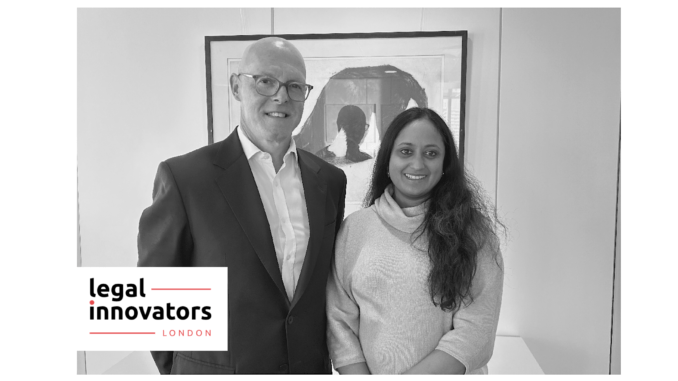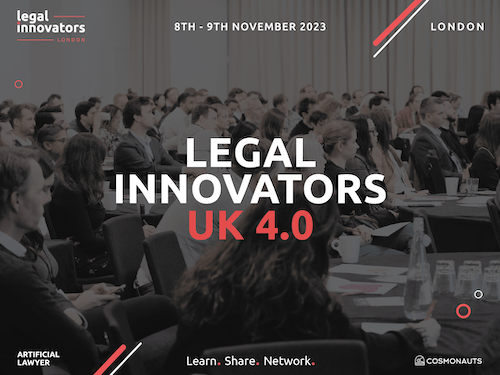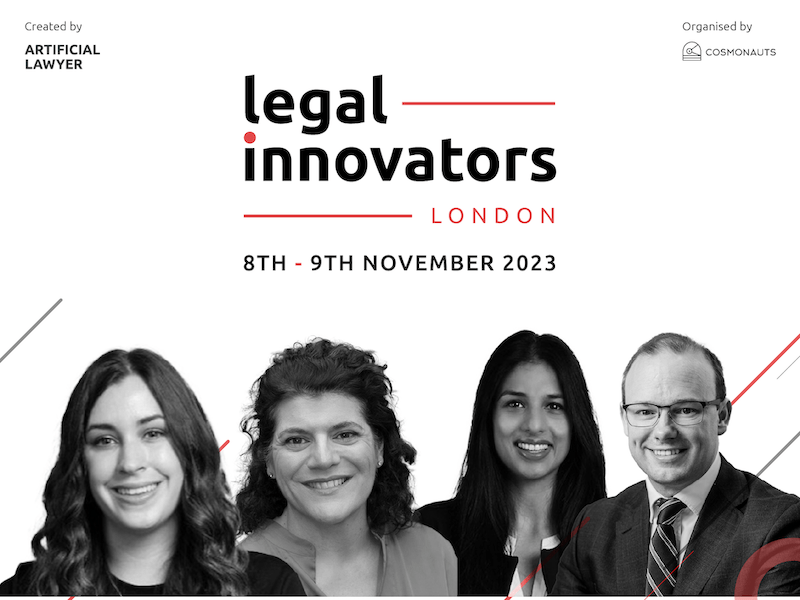
Generative AI is already being used by major law firms and this is just the beginning. Artificial Lawyer caught up with Shilpa Bhandarkar and Marc Harvey at global law firm Linklaters to find out what they are using it for.
Both are well placed in this regard. Shilpa is CEO of the firm’s legal tech group, CreateiQ, and is also the Co-Head of Linklaters’ Client Solutions & Innovation team; while Marc is a Partner at Linklaters in the Litigation, Arbitration & Investigations practice. They are also Co-Chairs of the firm’s GenAI Steering Group and are helping to drive forward several AI initiatives.
The full interview is below. Enjoy. And if you find this interesting then come along to the landmark Legal Innovators conference in London on November 8 + 9 at America Square – see link for more information and tickets – where genAI, what it means for our sector, and where we are heading with it, will be key topics, and where Shilpa and many other legal tech experts will be speaking. See you there!

—
AI tools, such as those based on Natural Language Processing (NLP), have been with us for some time; what has Linklaters used such NLP tools for and how do they compare to what generative AI can now do?
Marc – ‘We’ve been using machine learning (ML) tools for many years now – for document reviews in due diligence exercises, as part of e-discovery, in the redaction of documents and in many other transactional and non-transactional contexts.’
Shilpa – ‘GenAI, when it works, is amazing. It can do in seconds what otherwise took hours. It also really helps with what Marc has coined ‘blank-page-itis’ – we seem to find editing a first draft much easier than having to draft from scratch, and GenAI has been very helpful in giving us a first draft to work from.
The big proviso though, is the ‘when it works’. It does hallucinate, it can be annoyingly random in its responses, and it is very difficult to verify sources. So while we are excited about its potential, we are still testing and have put in place guardrails for use.’
Now that the LLMs of companies such as OpenAI, Anthropic and others have reached a productive level what specific tasks do you see this technology helping the lawyers of Linklaters with now and in the future?
Marc – ‘We’re already testing and using this technology in our day-to-day work, including to help draft notes, presentations, emails, and other content as well as summarise documents.
It does help save time in certain situations but, we still require our lawyers to scrutinise and fact check all output. As the technology improves, we should hopefully see consistent quality in output across these sorts of tasks.’
What feedback from the lawyers have you had so far on their use of LLM tech?
Marc – ‘For the most part, the feedback has been positive. Where the technology works well, it allows for a step change in productivity. It’s been great to see the engagement we’ve had – from trainees through to partners using the Chatbot and other POCs to test where it could add the most value to their work.
One piece of feedback we had was the need for more training on how to use the tech most effectively – which was the genesis for the structured prompt engineering training that we now run alongside our active networks where our people share use cases, feedback and tips.’
What type of arrangement do you have to make use of LLM technology? E.g. ‘home-made’ customised LLM, ‘off-the-peg’?
Shilpa – ‘We have multiple arrangements spanning all of the options. For example, we have a chatbot that we’ve built using Microsoft’s Azure OpenAI service (which means that our prompts and responses are kept within a secure Linklaters-controlled environment) – think of this as our secure version of ChatGPT.
We’ve also been working with Google’s Cloud Vertex AI platform to improve the speed and accuracy of our search capabilities. We are trialling CoCounsel by Casetext, which acts like an AI-powered legal assistant. And these are just the ones we’re able to disclose.
This technology is still emerging and the landscape is rapidly evolving. When you combine that with the fact that we’re a global full-service firm it’s clear to us that there is unlikely to be a one-size fits all – we will adopt the best tool for particular use cases.’
How does Microsoft’s connectivity to LLM capabilities play into what Linklaters is doing now?
Shilpa – ‘Our chatbot has been built using Microsoft’s Azure AI services so we’re already very familiar with what is possible – and as you would imagine, we are working very closely with Microsoft to ensure our people get the most out of their products on a daily basis, whether it’s drafting documents in Word or meetings in Teams.’
Finally, do you believe that this new technology will provide economic benefits to Linklaters’ lawyers, or their clients?
Marc – ‘Both! We’re still at the early stages of assessing GenAI’s impact on how we work, but we expect it to make our provision of legal services more efficient and we will of course look to share the benefits of that efficiency with our clients.’
Shilpa ‘It’s exciting – GenAI will give us the opportunity to more fully access and leverage all of the institutional knowledge that Linklaters has, across practice groups and geographies, over decades and decades of matters. This – we’d hope – is what will ultimately give our clients a very different experience of working with us.’
Thanks Shilpa and Marc! Look forward to hearing you speak at Legal Innovators in November.
—
Legal Innovators Conference – November 8 + 9 – London
The Legal Innovators conference, where Shilpa at Linklaters, and many other great speakers are taking part, will take place on 8 + 9 November. Day One: law firms and ALSPs, Day Two: inhouse and legal ops.
For tickets, please see here.
For more information, please see here.
The two-day event comes at a time of significant change for the legal market and we will be bringing you engaging panels and presentations where leading experts really dig into the issues of the day, from generative AI, to the evolution of ALSPs, to law firm innovation teams in this new era for legal tech, to how empowered legal ops groups and pioneering GCs are making a real impact.
See you there!
Richard Tromans, Founder of Artificial Lawyer and Conference Chair.
